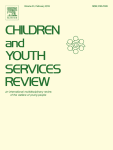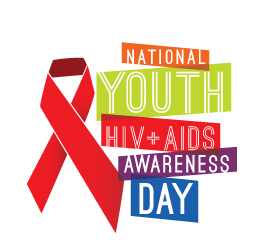 My co-authors Katherine Reuter, Ph.D. and Amber Brink and I recently published an article about a mental health home visiting service model for child abuse prevention. The journal – Children and Youth Services Review – allowed us to share our findings not only by publishing the full article, but also in a brief 5-minute audioslide presentation. Click here to view the presentation and learn more about the model and results that support its effectiveness in improving family functioning among families with young children who are at risk for child maltreatment.
My co-authors Katherine Reuter, Ph.D. and Amber Brink and I recently published an article about a mental health home visiting service model for child abuse prevention. The journal – Children and Youth Services Review – allowed us to share our findings not only by publishing the full article, but also in a brief 5-minute audioslide presentation. Click here to view the presentation and learn more about the model and results that support its effectiveness in improving family functioning among families with young children who are at risk for child maltreatment.
New publication coming soon

It’s always exciting when we have the opportunity to publish findings from our program evaluations. We are pleased to announce that we have a new publication coming soon! An article resulting from our work with the Westside Partnerships for Families program has been accepted for publication in Children and Youth Services Review. The paper, An Intensive Mental Health Home Visiting Model for Two At-Risk Early Childhood Populations, is authored by Katherine Reuter, PhD, former Program Director at the Providence Saint John’s Child and Family Development Center (CFDC) in Santa Monica, California, and Lisa Melchior, PhD and Amber Brink, BA of The Measurement Group.
Partnerships for Families is a child abuse prevention program that was initially funded by First 5 LA in 2006. Part of a county-wide initiative, Providence Saint John’s CFDC implemented this program in the Westside Service Planning Area of Los Angeles County. In the PFF Mental Health Model, mental health professionals work with families in a home visiting setting. The purpose of the program is to reduce risk and build protective factors in families with young children at-risk for child maltreatment. The paper describes the PFF Mental Health Model and documents improvements in family functioning among participants. It also presents data showing how caregivers reduced their risk on a number of personal characteristics — particularly those characteristics amenable to change through mental health intervention. Results were examined in two groups referred to the program: families with young children (age 0-5 years) who were referred by the Department of Child and Family Services, and pregnant women who were referred by community service providers due to risk factors for child maltreatment (such as depression, substance use, and/or domestic violence). Positive outcomes were observed at both the individual caregiver and family level in both of these groups.
We are pleased to help disseminate the outcomes of this innovative program and contribute to the evidence base for its effectiveness. While the focus of this article is primarily quantitative, we are currently working on another that will present a qualitative analysis of selected case studies to illustrate ways in which program participants demonstrate aspects of family strengthening.
Time flies…or what’s been going on at The Measurement Group

I really didn’t mean for this much time to go by since my last blog entry in May. My colleagues and I at The Measurement Group have been busy with a number of interesting projects. For example:
We recently completed a five-year evaluation of the Los Angeles Integrated Add Us In Consortium, led by the Integrated Recovery Network. This project was funded by the US Department of Labor, Office of Disability Employment Policy (ODEP) to expand employment opportunities for people with disabilities. The Los Angeles Consortium created and implemented a successful model for helping people with primarily mental health disabilities to gain “soft skills,” connect with employers, and gain and maintain jobs that match their abilities and interests. Across the five-year project period, the Los Angeles Consortium helped its clients — many of whom are homeless and dealing with mental illness — in successfully obtaining 193 jobs! It was an incredibly rewarding experience to work with this group and help them document and share their outcomes.
Since earlier this year, we have been working with Arizona First Things First on the evaluation of an online developmental screening program they have implemented in three regions. We’ve interviewed a number of stakeholders to understand issues that they encounter in providing developmental screening to families with young children (0-5 years). In particular, we’ve been learning about the successes and challenges they’ve had in using an online screening tool. We continue to gather and share information with our colleagues on this project to help inform their future developmental screening strategies.
These are just a few highlights of the work we’ve been doing in recent months. In addition, life got busy with high school graduations, family trips, and transitions with my son starting college. So, blogging took a back seat for a while. But with lots of news to share, I will be returning to active blogging soon…if not now, then I’ll make an early new year’s resolution?
National Youth HIV & AIDS Awareness Day
 April 10 is National Youth HIV & AIDS Awareness Day. I’m blogging today to show support for this important initiative. According to aids.gov, “National Youth HIV & AIDS Awareness Day is an annual observance that takes place on April 10 to educate the public about the impact of HIV and AIDS on young people and to highlight the work young people are doing across the country to respond to the epidemic.”
April 10 is National Youth HIV & AIDS Awareness Day. I’m blogging today to show support for this important initiative. According to aids.gov, “National Youth HIV & AIDS Awareness Day is an annual observance that takes place on April 10 to educate the public about the impact of HIV and AIDS on young people and to highlight the work young people are doing across the country to respond to the epidemic.”
I’ve had the privilege of working with a number of programs on the cutting edge of services for and by young people living with, or at risk for, HIV/AIDS. In the 1990’s, a group of 10 youth-focused programs were funded as Special Projects of National Significance by the Health Resources and Services Administration HIV/AIDS Bureau. In my role as one of the investigators in a cross-cutting evaluation of that initiative, I learned about the innovative work by these programs and the way they helped to empower young people — especially at a time when today’s treatment options were not yet widely available. It’s rewarding to see that a number of the programs that we worked with are still thriving and continuing the work that was started all those years ago.
What did we learn about HIV/AIDS service models for youth?
Looking back, what are some of the things we learned that might inform HIV and AIDS services for young people today? One thing that stands out is the use of empowerment models that were used by many of these programs. We reflected this theme in our evaluation by using an empowerment evaluation approach, providing extensive training and technical assistance in program evaluation to the young adults who staffed these programs — a number of whom have since gone onto successful careers in public health and non-profit management. Of course, I’m certain I learned more from them than they did from my colleagues and me (aka those of us with “letters after our names”).
Our evaluation findings, as well as papers from each of the programs in the initiative, were published in a special issue of the Journal of Adolescent Health. As we stated then, “One of the most important factors in the model’s success is that youth and professionals share an equal partnership in all stages of program design, planning, and implementation.” We also pointed out that “active case management is crucial, not only to ensure that clients receive needed services, but also to ensure that the programs themselves run in a coordinated, tightly linked way. Given needs of adolescent clients and existing adult-oriented service networks, the use of active case management and the active participation of youth in the services system are critical.”
Developing, Storing, and Sharing Lessons Learned from Evaluation
 I have a guest post today on the American Evaluation Association‘s AEA 365 blog about Developing, Storing, and Sharing Lessons Learned from Evaluation. Thanks to AEA for the opportunity to contribute to AEA 365, a blog that provides a tip-a-day by and for evaluators.
I have a guest post today on the American Evaluation Association‘s AEA 365 blog about Developing, Storing, and Sharing Lessons Learned from Evaluation. Thanks to AEA for the opportunity to contribute to AEA 365, a blog that provides a tip-a-day by and for evaluators.
Much of what I’ve learned about developing, storing, and sharing lessons learned in evaluation comes from work that Dr. George Huba and I started at The Measurement Group. We developed the approach described in my AEA 365 post and implemented some of the strategies described there in several large cross-cutting evaluations. While these ideas derive from working in the context of developing, storing, and sharing lessons learned from the evaluation of large, complex initiatives, the lessons that we learned as evaluators about developing, storing, and sharing lessons learned could just as well be applied to the evaluation of individual programs.